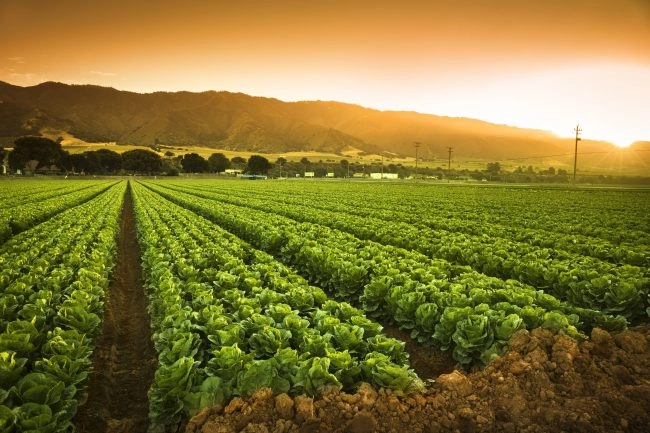Nigeria, once a major player in the global agricultural commodities market, particularly in palm oil and cocoa, has seen its position decline significantly over the years. This shift was largely due to the country’s focus on crude oil, which overshadowed the agricultural sector. However, with the current economic landscape and the need for diversification, Nigeria is now looking to revitalize its agricultural sector. But what does it take for Nigeria to regain its top status in agricultural exports?
CAN INCREASED INVESTMENT IN AGRICULTURE BE THE TURNING POINT?
Nigeria’s agricultural sector faces significant challenges, one of which is the lack of adequate investment. Currently, agriculture receives less than the recommended 10% of the national budget, which is insufficient to drive meaningful growth. To address this, Nigeria must prioritize investing in technology-driven practices such as mechanized farming and precision agriculture. These modern methods can significantly enhance productivity and efficiency, making Nigerian agricultural products more competitive in the global market.
Mechanized farming, for instance, can reduce labor costs and increase yields, while precision agriculture ensures that crops receive exactly what they need, reducing waste and improving quality. By adopting these technologies, Nigeria can not only meet its domestic food needs but also produce surplus for export, thereby generating substantial revenue.
HOW CAN NIGERIA TRANSFORM FROM A NET FOOD IMPORTER TO A NET EXPORTER?
Despite having vast arable land and a favorable climate, Nigeria struggles to feed its population and relies heavily on food imports. This paradox highlights the need for enhanced agricultural productivity. By improving farming practices and investing in irrigation systems, Nigeria can increase its crop yields and transform into a net food exporter.
This transformation would not only boost Nigeria’s economy through export revenue but also improve food security for its citizens. The potential for growth is immense, given the rising demand for crops like sorghum, cassava, and sesame. These crops are not only in high demand locally but also have significant export potential, particularly to countries like China.
WHAT ROLE DOES INFRASTRUCTURE PLAY IN ENHANCING AGRICULTURAL EXPORTS?
Improving transportation infrastructure is crucial for reducing costs and increasing efficiency in agricultural production and export. A modern rail system, for example, can significantly reduce the time and cost associated with transporting goods from farms to ports. This would make Nigerian agricultural products more competitive in the global market by ensuring they reach international buyers in a timely and cost-effective manner.
Additionally, policy support is essential for easing the process of doing business in agriculture. Simplifying regulatory processes and providing incentives for farmers and exporters can encourage more investment in the sector. By addressing these infrastructural and policy challenges, Nigeria can unlock its agricultural export potential and regain its position as a leading exporter.
HOW CAN CORRUPTION BE ADDRESSED TO ENSURE EFFECTIVE RESOURCE USE?
Corruption remains a significant obstacle to Nigeria’s agricultural development. Ensuring transparent monitoring of agricultural expenditures and programs is crucial to prevent corruption and ensure effective use of resources. This transparency can be achieved through digital platforms that track spending and outcomes, ensuring that funds are used for their intended purposes.
Addressing corruption will not only improve the efficiency of agricultural programs but also build trust among investors and international partners. This trust is essential for attracting foreign investment and accessing global markets, which are critical for Nigeria’s ambitions to become a major agricultural exporter.
WHAT OPPORTUNITIES LIE AHEAD FOR NIGERIA’S AGRICULTURAL SECTOR?
Despite the challenges, Nigeria’s agricultural sector is filled with opportunities. The African Continental Free Trade Area (AfCFTA) offers Nigeria a chance to expand its trade and investment across Africa. Initiatives like the Nigeria–Africa Trade and Investment Promotion Programme (NATIPP) aim to facilitate this expansion by enhancing trade capacity and reducing regulatory bottlenecks.
Furthermore, the Zero Reject Initiative, which focuses on improving the quality of Nigerian agricultural exports to meet international standards, is a step in the right direction. By adopting global quality standards, Nigeria can increase the acceptability of its products in international markets, thereby boosting exports.
CONCLUSION
Nigeria’s journey to regaining its status as a leading agricultural exporter requires a multifaceted approach. It involves increasing investment in technology-driven farming practices, enhancing food security, improving infrastructure, addressing corruption, and seizing new trade opportunities.
If you are interested in learning more about how to navigate these challenges and opportunities, consider registering for our upcoming export training at www.microvarsity.com/meta. This training will provide you with the insights and skills needed to succeed in Nigeria’s agricultural export market, helping you contribute to the country’s economic growth and diversification. By joining this training, you will be part of a community that is shaping the future of Nigeria’s agricultural sector and unlocking its full potential.

